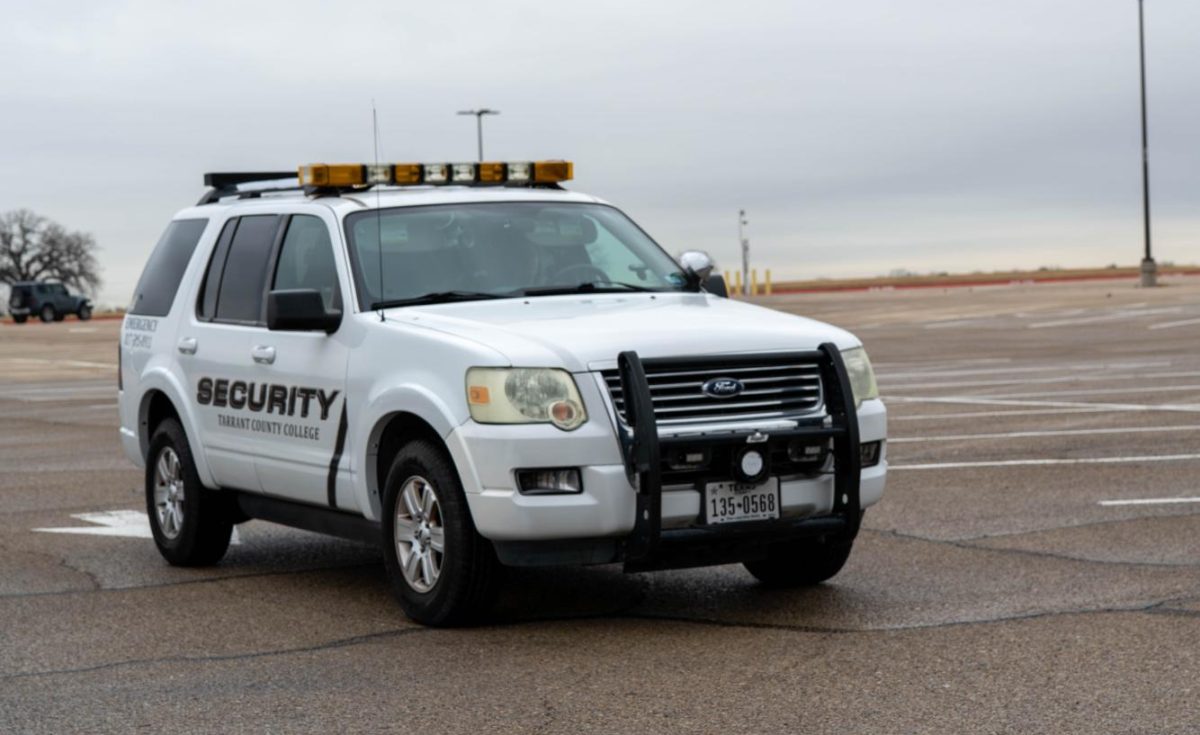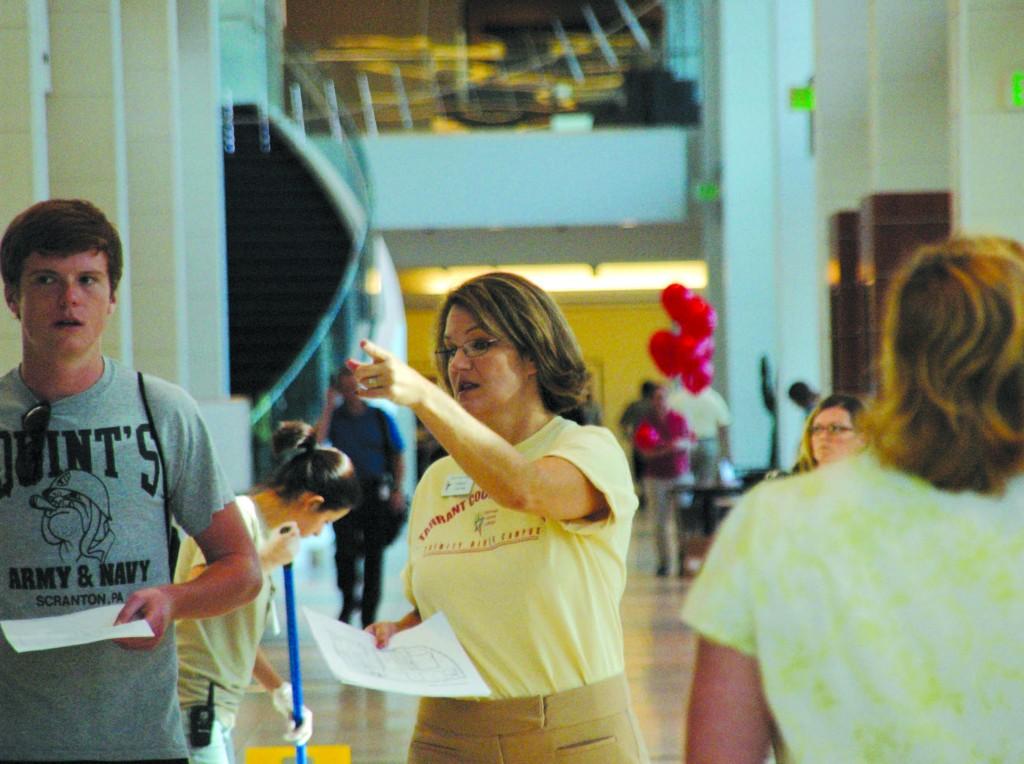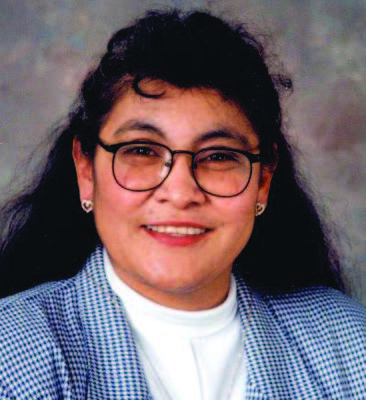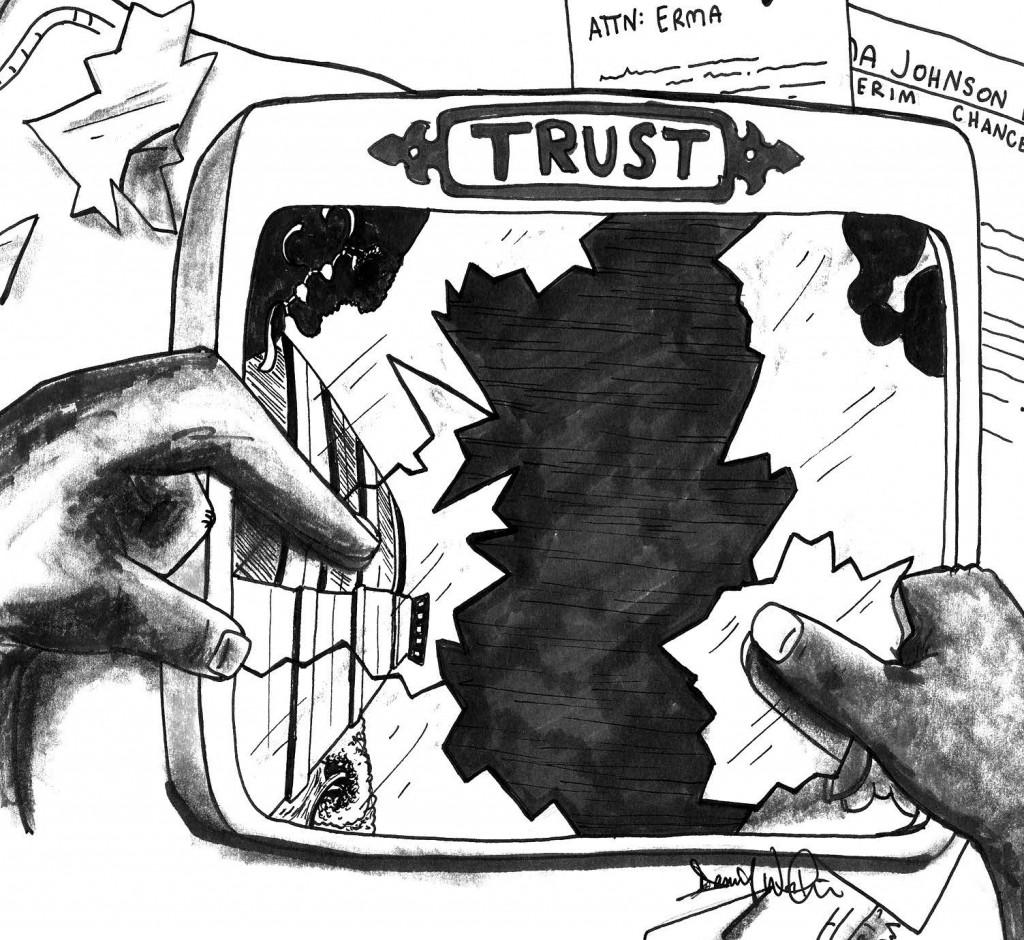By Allison Dooley/reporter
In only 16 weeks, students can train as a dispatcher for Burlington Northern Santa Fe Railway, earning a starting salary of about $65,000 with health and medical benefits.
The train dispatching program on NW Campus is an option available to students looking for a career without the time or finances to complete a traditional four-year degree. About 90 percent of students who complete the program and interview process are hired by BNSF and become dispatchers at centers in Fort Worth, San Bernardino, Calif., or Kansas City, Mo., said Daryl Litton, an instructor in the program since 1999.
Litton said train dispatchers are responsible for the protection of track workers on the rail and the movement of trains similar to what air traffic controllers do with airplanes.
“You are responsible for many people’s lives,” he said. “The job of dispatching is challenging, and the rewards are immediate. The job pays really well, but the level of responsibility is high.”
The first part of the dispatching course is a classroom setting where students learn the Railroad General Code of Operating Rules and become familiar with railroad rules, terminology and operations. Students later complete an internship, or “road trip” as it is known on the railroad.
They travel to various BNSF terminals and observe signal maintainers, section forces and other track workers and their equipment. Students also ride trains and meet conductors and engineers and learn railroad operations and territories, according to program graduates.
Classes meet 8 a.m.-4 p.m., and class size averages about 12 students each session.
Former students agree that dispatching is a demanding job that needs constant focus and concentration on the tasks of moving trains. Dispatchers move trains by lining signals and transmitting track warrants on the radio. They use the latest technology with an emphasis on safety in their workplace.
“The most interesting and memorable thing from my training was the road trip I took to Chicago,” said BNSF train dispatcher Corey Haught. “This provided me an opportunity for hands-on experience and the ability to see the territory I am now dispatching.”
Christopher Southard recently passed his probation period as a dispatcher and now works in the Fort Worth center.
“It is a career that requires a unique person,” he said. “It is not for everyone. It takes a lot of common sense and thick skin. It is a very good career.”
Jessica Hammer, who became a BNSF train dispatcher after graduating from the program, said the job is challenging yet rewarding.
“The feeling of accomplishment you have when you leave is great,” she said. “You are responsible for moving trains full of people, mail and other important things. It is a great feeling knowing that you did a good job and didn’t delay those trains.”
Dispatchers work 24 hours a day, seven days a week including holidays.
“It is a good, stable job, but plan on working Christmas or other holidays or night and afternoon shifts,” Litton said.
Hammer also likes the pay and benefits.
“I would definitely recommend dispatching. You only go to school for four months and that’s it. You start off making the same amount of money as the guy who has been there 30 years,” she said. “I like that I only work eight hours a day. It is always different. You never have the same day twice.”
Recent dispatcher graduate and current BNSF train dispatcher Amy Thomas likes her job but doesn’t believe it is for everyone.
“I would recommend dispatching as long as you understand that there will be crazy hours and you are good at managing stress,” she said. “The salary and health benefits are good.”
Unlike some occupations, train dispatchers have a lot of control and independence performing daily duties on their territories and make numerous operational decisions each day.
“The ability to plan ahead is very important. Good memorization and the ability to not let the stress get to you are important qualities a dispatcher needs to be successful,” Litton said.
Recent graduate Jim Hall now works at BNSF.
“Dispatching is a rewarding job, and it is like building a puzzle every day with different pieces,” he said.
Students interested in the train dispatcher program should contact Pam Armstrong at 817-515-7775 for eligibility requirements, selection process and program schedules.
Scholarships for this program may also be available. Contact any TCC financial aid office for specific information.


























